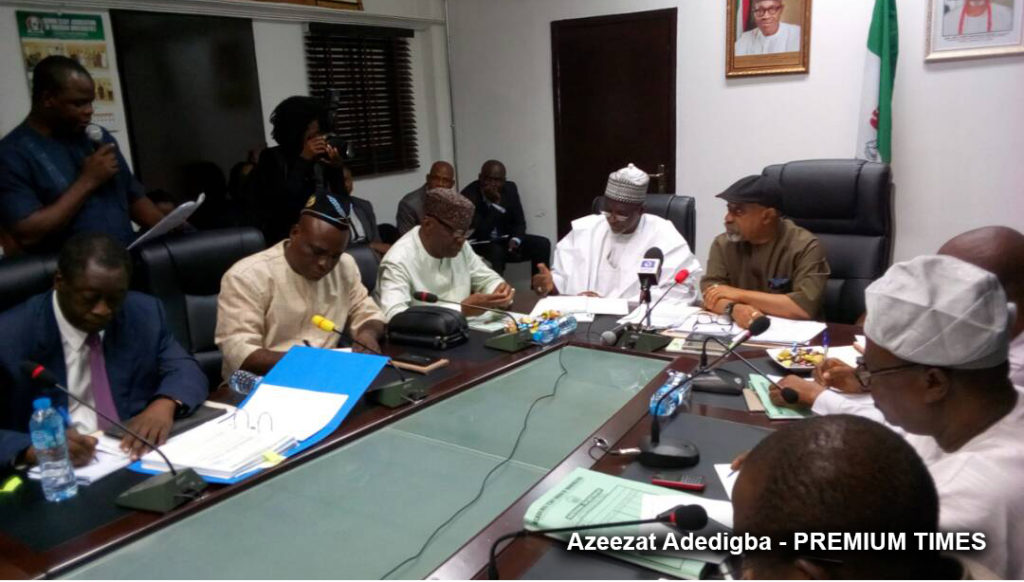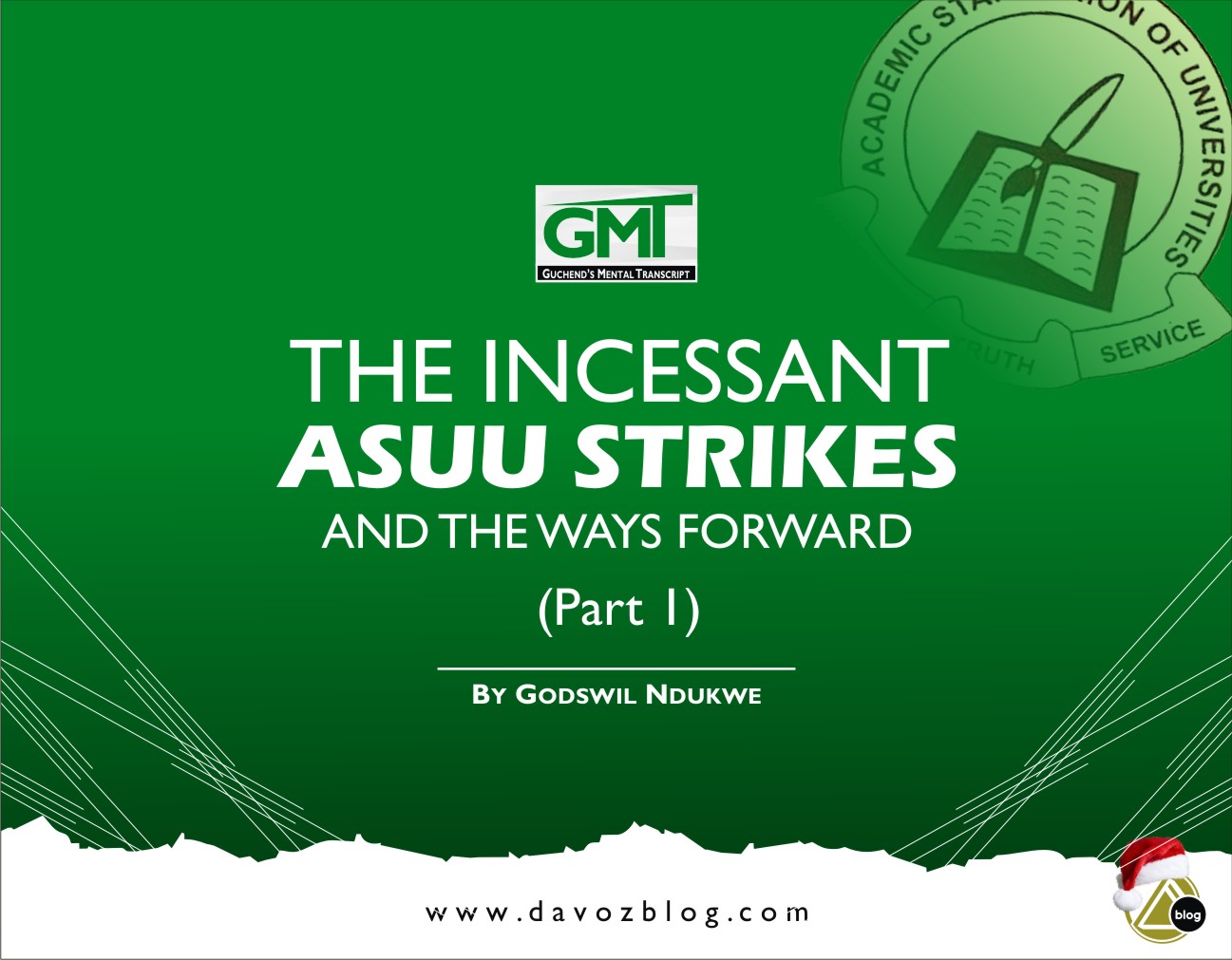It is no longer news that the Academic Staff Union of Universities (ASUU) strike had been on for the past nine months (March 9 still date) untill it was eventually called off just recently.

The history and struggles of ASUU was at the beginning of the decline in the oil boom, when the country faced the consequences of the failure of its rulers to use the oil wealth to generate production and a social welfare system. Military dictatorship had deeply eroded the basic freedoms in the society. Academic freedom and university autonomy were casualties of this military dictatorship. The funding of education, and so of universities grew poorer as the country currently spends less than 10% of its budget on education in far contrast to the 26% that is required for developing and undeveloped countries. This situation amongst others had led ASUU to use the weapon they know best to fight the federal government: industrial strike. The questions are, is ASUU succeeding with its strikes with the Federal Government? And Is there no alternative means of settling these disagreements with government without resort to strikes? This is very necessary to avoid further rot in the university system and as we all know; keeping the Nigerian University students idle for too long is likely to lead to social vices.
Data analyzed by the Premium Times newspaper in 2018 and updated till 2020 showed that Nigerian lecturers had gone on strike 15 times since 1999. The entire period they embarked on such strike spanned about 50 months.
This represents about one-fifth, or 20 percent, of the number of years since the dawn of uninterrupted democracy in Nigeria (1999). This means for every five years since 1999, public universities in Nigeria spent one on strike.
It’s also roughly estimated that the nation has lost N 1.2 trillion to ASUU strikes. The sources at the NUC told a reputable newspaper that this amount represented the total emoluments paid to the teachers during the period of the strikes, as the two tiers of government never invoked the provisions of the extant Act on “No work, No pay”.

The chapter chairman of ASUU in UNN on Monday December 14, 2020 while briefing newsmen on the protracted strike said the briefing was to correct the misinformation in a national daily, where it was alleged that the union embarked on its action because of IPPIS. According to him ASUU Went on industrial action due to the federal government failng to honour the 2009 agreement and Memorandum of Understanding (MoU) it entered with ASUU .
In 2009 ASUU demanded 1.5 trillion naira for pension arrears and revitalization of public universities which the federal government promised to disburse in trenches within 3 years. After the first 220 billion naira was disbursed the FG reneged on its agreement thus the 2013 strike.
The finest solution as suggested by pro-capitalist is to privatize all government owned universities and also regulate the fees; after all in true federalism the government has no business in running universities. It is obvious that government spend heavily to subsidize higher education in Nigeria. A student in a federal university pays an average of forty thousand naira (N40, 000) per session while a student in a private university pays an average of four hundred thousand naira (N400, 000) per session. According to a 2018 report by the World Bank, almost half the population is living below the international poverty line ($ 2 per day). If public universities are privatized how can the children of the masses who consist of the bulk of the country’s demography get access? In the days of our Founding fathers university education was perceived to be an elitist experience. Only those who can afford or on scholarship went to the very few higher institutions in the country; the standards, they say were high and as good as the best in the world as validated by the famous Ashby Report Circa 1963. When the Ashby commission submitted its report they were only two full fledged universities in Nigeria. Currently, nearly three score years after they are over 250 universities in the country and none is among top 200 in the world by all ranking- more access less quality. This resonates with Prof. Pat Utomi view on the state of tertiary education in Nigeria as a “Paradox of Access”.
In some quarters the public universities system has been perceive to have failed to deliver just as the power sector. As we know before power was privatized, the Obasanjo’s administration was said to have spent about $16 billion on power but still can’t generate more than 5,000 MW while Indonesia spent half that amount and generate nearly 30,000 MW- same with aviation. The only success story the country has with privatization so far is in the telecom industry. To some, even if the government pump trillions into the public varsities it will still deteriorate within a short time due to corruption and mismanagement as the first 220billion was not properly accounted for.



